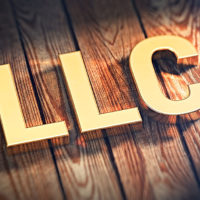Protect Your Assets: Forming an LLC in Florida

One of the major benefits of forming a limited liability company (LLC) is that in most cases, you will not be personally liable for company debts. Unlike a sole proprietorship which makes no distinction between the debts of the company and those of the owner, an LLC is considered a separate legal entity. This means that LLCs can own assets, enter into contracts, and are held responsible for their own debts. Therefore, if you own an LLC, your personal assets will not be liquidated to repay business debts. Although there are exceptions to this rule, forming a limited liability company is typically the best alternative for business owners to protect their property.
How to Form an LLC in Florida
If you want to form a Florida limited liability company, there are some key steps to follow.
-
Create a Name for Your Company
The name of your LLC must be distinctly different from the name of any other business on file with the Florida Division of Corporations. Also, the words “limited company,” “limited liability company,” or the abbreviations “L.C.,” or “L.L.C.,” must be included in the name.
-
Select a Registered Agent
Your LLC needs to have an agent that will accept legal papers on the LLC’s behalf in the event that it is sued. The agent can be either a Florida resident or another Florida business entity with a physical street address in Florida.
-
File for Articles of Organization
The articles must be filed online or by mail with the Florida Division of Corporations. This includes the names and addresses of the LLC’s registered agent, managers, and the LLC itself. Additionally, there is a $125 filing fee.
-
File Annual Reports
In order to maintain status as an active LLC, you must file an Annual Report online between January 1 and May 1 of every year.
When you Become Personally Liable for LLC Debts
Although an LLC typically protects your personal assets, there are certain situations when this is not the case. Avoid taking the following actions to protect your property from liquidation.
-
Cosigning a Business Loan. If you cosign on a loan for your business, then you will be held personally liable to pay back the business debt — if the LLC does not have enough funds to cover the payments on the loan.
-
Pledging Your Personal Assets as Collateral. When starting a new company that does not have many assets, you may be required to provide some other kind of collateral for your loan to get approved. Therefore, if you pledge your own personal assets as collateral to obtain your business loan, your property may be eligible for liquidation should your LLC be unable to pay off its debts.
-
Piercing the Corporate Veil. The directors or shareholders of an LLC may be at risk of becoming personally liable for their company’s debts if a court determines that the company did not use reasonable and fair judgement in its decision making, or if they are found to have committed fraud. The elimination of the company’s liability protection is known as “piercing the corporate veil.”
If you are considering forming an LLC in Florida, you should speak with a West Palm Beach Business Litigation Attorney to help you through the process. The team at Kelley Kaplan & Eller is always available to provide expert advice and answer all of your questions. Call today to learn more.



